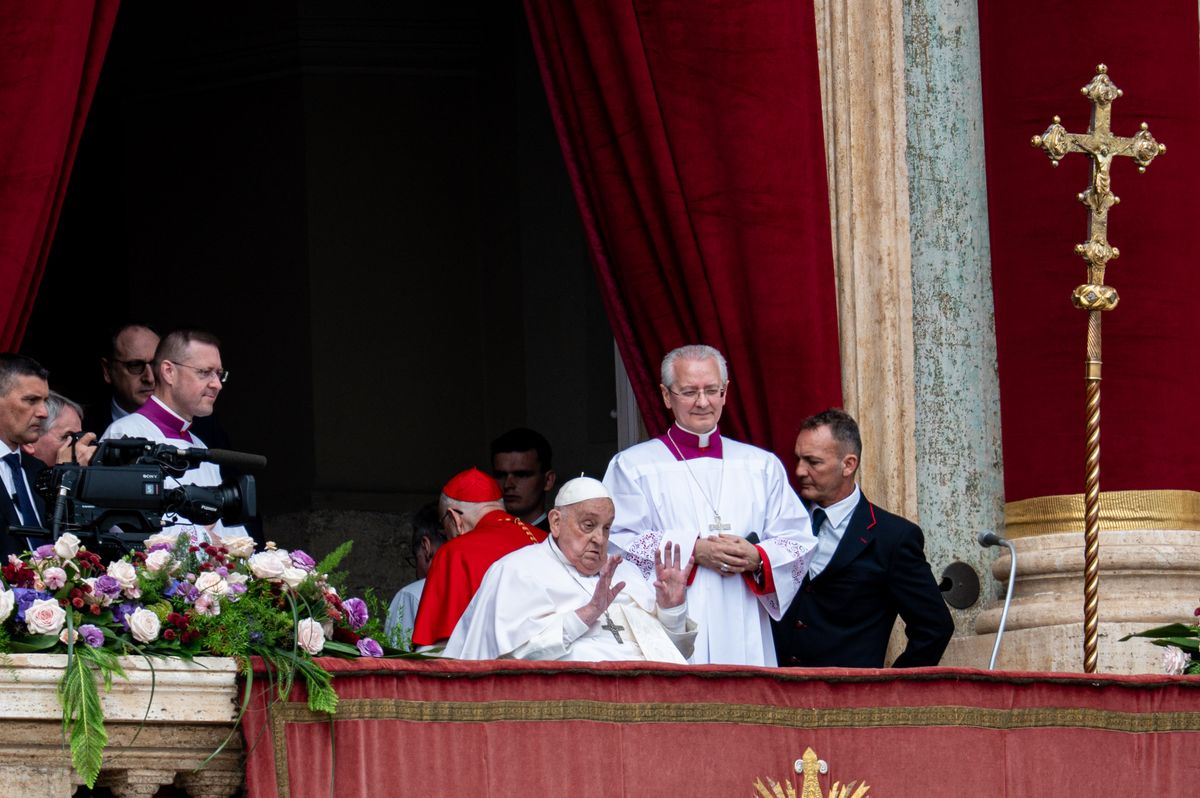In a moment that marks the end of an era and the beginning of a high-stakes global spiritual transition, Pope Francis passed away on April 21 at the age of 88, just a day after delivering Easter Sunday blessings to thousands in St. Peter's Square. According to the Vatican, the pontiff suffered a stroke and irreversible cardiovascular arrest. His doctor, Andrea Arcangeli, said the Pope had fallen into a coma before he died.
As the world reflects on the legacy of Pope Francis, born Jorge Mario Bergoglio (the first Jesuit pope and the first from the Americas), his death sets in motion the ancient and secretive process of electing his successor.
Let's walk through what happens next, what's at stake, and who could be wearing the white cassock in the coming weeks.
Pope Francis Is Dead. Now What?
The Catholic Church doesn't just flip a "Now Hiring" sign when a Pope dies. Instead, it enters a special transition period known as the interregnum—Latin for "between reigns." Until a new pope is chosen, the Church is in sede vacante ("the seat is vacant"), and no major decisions are made.
The camerlengo (currently Cardinal Kevin Farrell) temporarily takes over Vatican administrative duties and is in charge of organizing the conclave, the ultra-private papal election.
Meanwhile, the Church begins nine official days of mourning called the novendiales, honoring the deceased Pope with daily Masses and ceremonies.
Inside the Secretive Conclave
The conclave will begin 15 to 20 days after Francis's death. Here's where things get very Da Vinci Code, without the fictional treasure maps.
Only cardinals under the age of 80 are elected and locked inside Vatican City. There are no phones, texts, or Instagram papal polls.
The 120 eligible cardinals will attend general congregations to discuss the Church's pressing issues beforehand. These could include everything from LGBTQ+ inclusion to migration to how the Church should respond to scandals and modernization.
Ballots are cast in secret when the voting starts in the Sistine Chapel. The candidate must secure a two-thirds majority. If there is no winner, the ballots will be burned with special chemicals to emit black smoke. If they agree and get one, white smoke goes up, the news makes headlines, and the Catholic Church has a new Pope.
Who Picks the Pope? And Who's in the Running?
Pope Francis reshaped the papal electorate during his tenure. By the end of 2024, he will have appointed nearly 80% of the cardinals eligible to vote, many with more progressive leanings.
So, who are the frontrunners in this divine job search? Here's the Vatican's version of the draft list:
Jean-Marc Aveline (66, France)
A refugee himself, Aveline champions interfaith dialogue and migrant support. Considered Francis's "favorite," he has a moderate tone on hot-button topics like same-sex blessings.
Joseph Tobin (72, USA)
Outspoken advocate for LGBTQ+ rights, women's roles in the Church, and migrants. Clashed with Mike Pence over refugee policy. Bold and progressive.
Juan Jose Omella (79, Spain)
Close to Francis but with a more conservative voice. His take on sexual abuse reports has stirred controversy.
Pietro Parolin (70, Italy)
Currently, the Vatican's Secretary of State and the Church's top diplomat. Fluent in geopolitical chess.
Péter Erdő (72, Hungary)
A traditionalist with a complex immigration history. Once compared to accepting refugees to smuggling, his stance softened.
Peter Turkson (76, Ghana)
A papabili with global cred. Champion for human dignity and environmental justice. They would be the Church's first Black Pope.
Luis Antonio Tagle (67, Philippines)
If elected, he'd be the first modern-day Asian Pope. He is known for empathy, humility, and progressive outreach.
Mario Grech (68, Malta)
Heads the Vatican's Synod, a summit on the Church's future. Balances traditional doctrine with progressive openness.
Matteo Maria Zuppi (69, Italy)
A Francis-style bridge-builder, Zuppi engages in international diplomacy and champions inclusion, prison reform, and LGBTQ+ rights.
Why This Matters (Beyond Vatican Walls)
This papal election isn't just about the Church; it's about where 1.3 billion Catholics (and the curious world watching) are headed. Will the Church double down on tradition? Will it lean into progress? Will it continue Francis's path of compassion and reform, or will it swerve?
With scandals, declining church attendance in the West, and growing congregations in the Global South, the next Pope will be steering through cultural, moral, and geopolitical storms.
While the selection process is veiled in ritual and mystery, the implications are crystal clear. The decision made in that Sistine Chapel puff of white smoke will shape the direction of one of the world's most powerful spiritual institutions for decades to come.
So, habemus papam? Not yet. But stay tuned. The world's most sacred election is about to begin.
,type=downsize)
